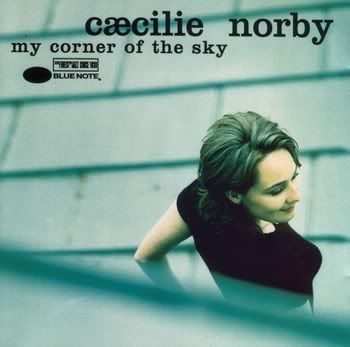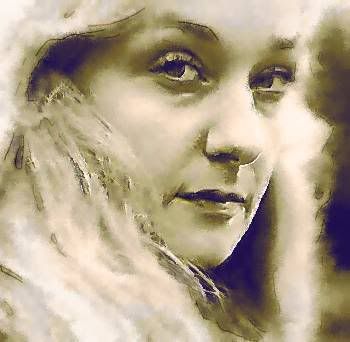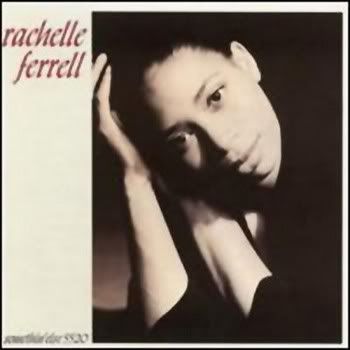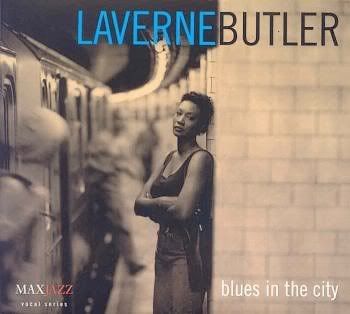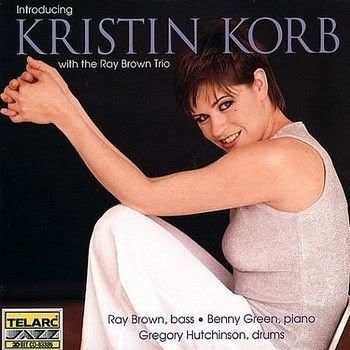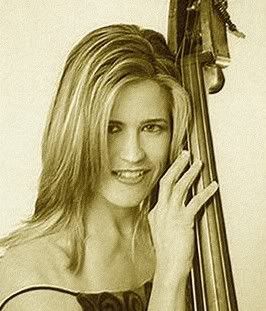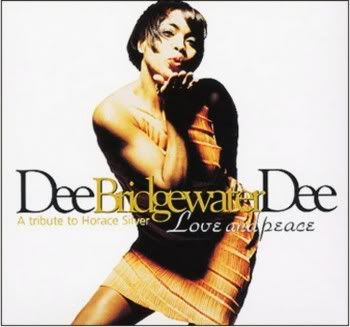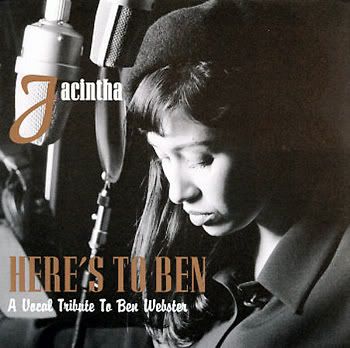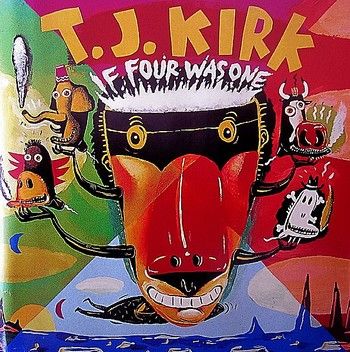
T.J. Kirk - If Four Was One - 1996 - Warner Bros.
If Four Was One (Warner Bros 9 46262-2: 43:34), the second effort from guitar summit group T.J. Kirk, is a slightly more energetic outing than the group's debut. Like the first one, it looks at the music of Thelonious Monk, James Brown and Rahsaan Roland Kirk through a funk-jazz guitar prism (with Prince's "Rockhard in a Funky Place" the only deviation). All the principals are back: Charlie Hunter holds down guitar and bass duties on his eight-string guitar, joining fellow stringsmen John Schott and Will Bernard. This time, the arrangements and playing are more pointed and focused. As with the last disc, the group's tasty licks sound best on the JB stuff. Hunter's sly phrasing is heard on "Get on the Good Foot/Rockhard in a Funky Place." Bernard's octave-effect laden solo energizes "The Big Payback", but some of the other stuff works just as well. Bernard's work on "Ruby My Dear" recalls Blow by Blow-era Jeff Beck, while Schott ellipses his way through the "Meeting at Termini's Corner/I got a Bag of My own/Brilliant Corners" medley. By & © Tony Green January/February 1997 © 1999–2012 JazzTimes, Inc. All rights reserved http://jazztimes.com/articles/8868-if-four-was-one-t-j-kirk
The idea of three guitarists and a drummer who play the music of Thelonious Monk, James Brown and Rahsaan Roland Kirk may seem odd or limiting, but the musicianship of the players in question has produced an album that explicitly explores the connections between the compositions of these three legendary musicians while raising the stakes in the debate about what is and isn't "jazz." Scott Amendola's drumming is precisely funky throughout, and Charlie Hunter's 8-string guitar supplies both the punchy basslines and the heavily chorused chords that Will Bernard and Will Schott build upon, resulting in a tightly rendered "The Payback," a stirring version of the eternal "Ruby, My Dear" and the multiple tempos and timbres of "Brake's Sake." Worthwhile. © Peter Stepek © 2012 Rovi Corporation. All Rights Reserved http://allmusic.com/album/if-four-was-one-r240942/review
With such a uniquely brilliant concept behind them, this quartet's success is ensured even before they go into a studio. Their only weapons: three eclectic electric guitarists (Charlie Hunter, John Schott, Will Bernard), one drummer (Scott Amendola), and the songs of Thelonious Monk, James Brown, and Rahsaan Roland Kirk. No matter whose tune they're playing, they seem to combine the approaches of all three simultaneously: Monk's curiosity, Brown's insistent rhythms, Kirk's passion. Not only can they execute their ideas, they also have a great deal of fun mixing and matching the various composers. Sometimes two melodies will battle each other for supremacy; other times a quirky Monk melody will be backed by funky grooves. Somehow, it all blends together seamlessly. © 2012 Net2Da http://net2da.net/t-j-kirk-if-four-was-one-1996-lossless/
An unusual, clever, very innovative, and satisfying mix of soul and jazz fusion by four of the best players in the business, and HR by A.O.O.F.C. Try and listen to T.J. Kirk 's 1994 s/t album [All tracks @ 320 Kbps: File size = 99.6 Mb]
TRACKS / COMPOSERS
1 Damn Right I'm Somebody - James Brown, Fred Wesley 5:07
2 Get on the Good Foot/Rockhard in a Funky Place - James Brown, Eric Leeds, Joe Mims, Prince, Fred Wesley 6:44 *
3 Stomping Grounds/Untitled Instrumental/Green Chimneys - James Brown, Rahsaan Roland Kirk, Thelonious Monk 5:32
4 The Payback/I Mean You - James Brown, Coleman Hawkins, Thelonius Monk, John Starks, Fred Welsey 4:05
5 Brake's Sake - Thelonius Monk 4:30
6 Ruby,(It's a Man's, Man's, Man's World) My Dear - Thelonius Monk, James Brown 3:21
7 Meeting at Termini's Corner/IGot a Bag of My Own/Brilliant Corners - James Brown, Rahsaan Roland Kirk, Thelonious Monk 4:46
8 Cross the Track/Thelonious - James Brown, Thelonius Monk 4:44
9 Four in One - Thelonius Monk 4:31
* N.B: "Rockhard In A Funky Place" is also a Prince song on the "Black Album".The "Black Album" contains a song written with James Brown called "2 Nigs United 4 West Compton."
BAND
Will Bernard - Guitar, Slide Guitar
Charlie Hunter - 8 String Guitar
John Schott - Guitar
Scott Amendola - Drums, Percussion
BIO
T.J. Kirk may not be remembered in the annals of jazz/fusion history, but the quartet's story is uniquely its own. Formed by eight-string guitarist Charlie Hunter as a side group to his own self-titled and San Francisco-based band, T.J. Kirk was a cover act that took its name from the three artists making up its catalog: Thelonius Monk, James Brown, and Rahsaan Roland Kirk. Hunter's recording career had started in 1993, and he brought his group's drummer, Scott Amendola, into T.J. Kirk to join the more conventional six-string guitarists Will Bernard and John Schott. The band wanted to be called James T. Kirk, but settled for T.J. Kirk for their 1995 self-titled debut CD when they didn't get permission to use the original moniker from Star Trek creator Gene Roddenberry's estate. The album gave Hunter license to play in styles even more funky than with his own ensemble, as the eight-string guitarist often played bass lines and guitar melodies (usually simultaneously) and even added keyboard-like textures on his customized Novax instrument. Combined with Amendola's muscular drumming, Hunter's versatility allowed Bernard and Schott the freedom to re-work their namesake trio's classics like "Soul Power," "Bemsha Swing," and "Serenade to a Cuckoo." The group's 1996 follow-up, If Four Was One, was even better. T.J. Kirk had a knack not only for mimicking Brown's soul epics ("Get on the Good Foot," "The Payback"), but also making danceable the jazz standards of Monk and Kirk ("Damn Right I'm Somebody," "Ruby, My Dear," "Four in One"). Yet Hunter, never one to stand pat, was making changes in his own band's career. When he covered reggae legend Bob Marley's time-honored Natty Dread album, instrumentally and in its entirety, in 1997, and in the process made one of his best CDs, T.J. Kirk was essentially finished except for the live bootleg recordings. The death of Hunter's saxophonist Calder Spanier in an auto accident later in the year -- and Hunter's decision to move from the Bay Area to New York in 1998 -- officially ended the reign of T.J. Kirk. But as anyone who's heard their releases knows, T.J. Kirk is the unofficial captain of jazz/fusion's all-time cover bands. Further evidence appeared in 2005 when the Rope-A-Dope label issued a 1997 concert by the band as Talking Only Makes It Worse. © Bill Meredith © 2012 Rovi Corporation. All Rights Reserved http://allmusic.com/artist/tj-kirk-p165793/biography


